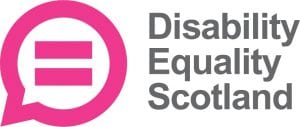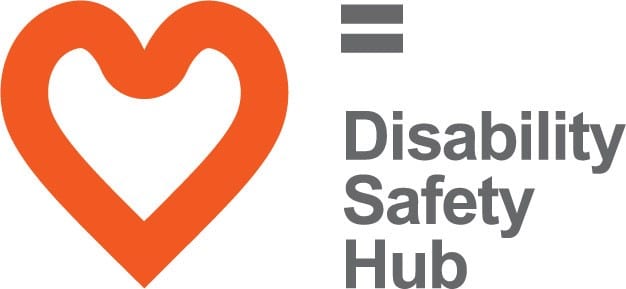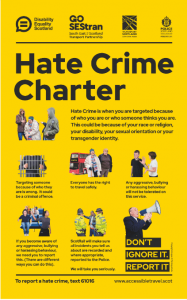Disability Equality Scotland
Case study
Disability Equality Scotland
About Us
 Disability Equality Scotland is a national charity working to achieve full access and inclusion for disabled people in Scotland. We are a membership organisation and as such listen to the views of disabled people and champion on their behalf. We work to influence the policies of the Scottish Government, which affect how disabled people live, and work to encourage others to be inclusive and informed in their attitudes towards disabled people.
Disability Equality Scotland is a national charity working to achieve full access and inclusion for disabled people in Scotland. We are a membership organisation and as such listen to the views of disabled people and champion on their behalf. We work to influence the policies of the Scottish Government, which affect how disabled people live, and work to encourage others to be inclusive and informed in their attitudes towards disabled people.
Access Panels
We are also the umbrella organisation for all disability Access Panels in Scotland and the principal provider of support and guidance to the Access Panels presently representing disabled persons at a local level throughout Scotland. Access Panels are committed to improving access and equality in its widest form, which means access to the physical environment, Education, Housing, Health, Transport, Leisure & Recreation and Social Justice amongst other areas.
Disability Safety Hub
In October 2018, during National Hate Crime Awareness Week, we launched the Disability Safety Hub (www.disabilitysafety.scot), a website to help the public identify hate crime and how to report it.

What is Hate Crime?
A hate crime is when someone commits a crime against you because of your disability, gender identity, race, sexual orientation, religion, or any other perceived difference.
A significant proportion of women in Scotland have experienced violence during their lives. Almost 1 in 5 have experienced partner abuse, with women with disabilities or long-term illnesses, those living in deprived areas, and bisexual and lesbian women more likely to experience partner abuse. Only a small proportion of incidents of partner abuse are reported to the police.
Funded by the Scottish Government, the Disability Safety Hub was established due to the alarming statistics that were uncovered in research by the charities Mencap and Quarriers, which highlighted that 97% of disability hate crime goes unreported. Too often we hear from disabled people who brush these incidents off and accept it as part of their day-to-day lives. They can and should report it and the Disability Safety Hub offers support to help disabled people do this.
We worked closely with a number of different stakeholders to help shape the content and design of the Hub. Organisations that we engaged with included: Police Scotland, Scottish Ambulance Service, NHS 24 and the Central Scotland Regional Equality Council (CSREC). We also encouraged input from Disability Equality Scotland members and the Access Panel Network, to ensure the Hub was designed with accessibility at its core.
Based on the input from key stakeholders, we opted to convey key messages on the Hub using the Easy Read Format. This puts information into simple, jargon-free language, shorter sentences and has accompanying Photosymbol images. Easy Read is useful for everyone because it makes information easy to understand. It is particularly helpful for people with learning disabilities, communications difficulties or cognitive impairments.
The Hub contains case studies, resources, contacts and the latest campaigns to tackle hate crime in Scotland.
Public Transport Hate Crime Charter
 One such campaign featured on the Hub is the public transport Hate Crime Charter. Disability Equality Scotland led a working group to design, develop and pilot a Charter which would act as a zero-tolerance approach to hate crime on public transport. It was intended to challenge hate crime and encourage reporting. This was to contribute to the outcome in the Accessible Travel Framework (2016), a ten-year plan by Transport Scotland, which looks to ensure disabled people feel comfortable and safe to travel on public transport
One such campaign featured on the Hub is the public transport Hate Crime Charter. Disability Equality Scotland led a working group to design, develop and pilot a Charter which would act as a zero-tolerance approach to hate crime on public transport. It was intended to challenge hate crime and encourage reporting. This was to contribute to the outcome in the Accessible Travel Framework (2016), a ten-year plan by Transport Scotland, which looks to ensure disabled people feel comfortable and safe to travel on public transport
Together with Police Scotland, SEStran and Transport Scotland, we consulted with disabled people on the benefits of a Hate Crime Charter. These discussions helped to inform the development of the pilot, which took place with three major transport providers: First Bus, Stagecoach and ScotRail.
Hate Crime Charter Progress
We worked with Stagecoach and First Bus to display the Charter on buses in Leven and Stirlingshire and ScotRail who displayed the Charter in stations in Fife. The Charter reached 1,255,666 passengers during the pilot phase which ran from October 2019 – January 2020.
The evaluation of the pilot is underway, and early indications show that the Charter had an impact in two ways; on both passengers and transport staff. Disabled people suggested that the Charter made them feel more secure, as it made clear who to contact in an incident, while raising awareness of the topic of hate crime.
For the latest progress on the Hate Crime Charter, visit the Disability Safety Hub: www.disabilitysafetyhub.scot
Visit the Disability Safety Hub: www.disabilitysafety.scot
DES social media channels
Facebook: www.facebook.com/DisabilityEqualityScotland
Twitter: @DEScotTweets